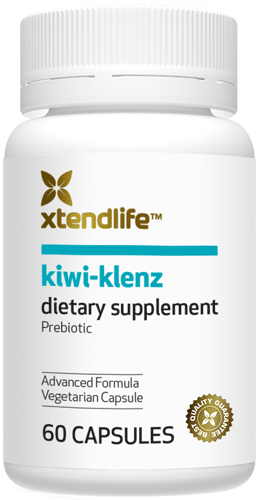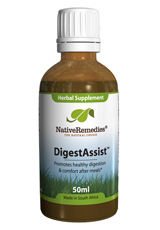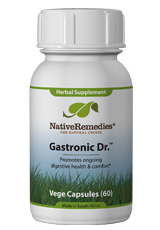If you’re looking for IBS remedies, there are four supplements that you might not know about. In this article, you’ll discover what they are and why they can help you. But first, a bit about IBS.
What Exactly is IBS?
IBS is short for Irritable Bowel Syndrome. Unfortunately, it’s becoming an increasingly common health problem. It’s estimated that one in five adult Americans suffer from it these days. It usually affects people aged between 25-45, and interestingly, twice as many women have it than men.
What happens with IBS is that the digestive muscles, organs and nerves stop working correctly. The muscular contractions of the digestive tract become irregular and uncoordinated. This interferes with the normal movement of food and waste through the body. As a result, mucus and toxins accumulate in the intestine. Gas is also trapped. Bloating and constipation are common symptoms, and may alternate with diarrhea. Hence, irregular bowel movements are a huge problem with this disorder.
It’s important to note that IBS shouldn’t be confused with the more serious diseases ulcerative colitis and Crohn’s disease. They’re both inflammatory bowel disorders, similar to IBS. However they result in lesions in the digestive tract, whereas IBS does not. There are no real physical signs of IBS in the bowel tissue.
What Causes is IBS?
Similar to ulcerative colitis, unfortunately researchers are yet to determine exactly what causes IBS. One theory is that there are anomalies in the intestinal hormones that are responsible for bowel motility. This results in abnormal contractions of the smooth muscle of the intestine.
Other possible causes are a virus (such as the Epstein-Barr virus) or bacteria (such as streptococcus), lifestyle factors such as stress and diet, and the overuse of antacids, laxatives or antibiotics which upset the balance of digestive bacteria in the intestine.
Is IBS allergy related?
Some studies have found that food allergies do contribute to IBS. Up to 66% of people with IBS could have one or more food allergies. However, the problem is that it’s not easy to determine the foods that cause the allergies. The most common offenders include dairy products and grains rich in gluten, such as wheat. An individual’s IBS could be a reaction to anything though.
Naturally Helping the Digestive Process
Two things that you can do to help keep IBS at bay is to make sure the digestive bacteria in your intestine is healthy and take a digestive enzyme.
There are a whole range of natural digestive aids that can assist with the digestive process, including specific supplements that can alleviate the symptoms of IBS. Let’s take a look at three of the best ones.
1. Kiwi Klenz
 Kiwi Klenz is a potent, concentrated kiwi fruit extract supplement. In case you’re not aware, the kiwi fruit has numerous documented health benefits for digestion. One of them is the improvement of bowel function in IBS sufferers who experience constipation.
Kiwi Klenz is a potent, concentrated kiwi fruit extract supplement. In case you’re not aware, the kiwi fruit has numerous documented health benefits for digestion. One of them is the improvement of bowel function in IBS sufferers who experience constipation.
In this study, conducted in 2010, a total of 41 patients consumed two kiwi fruits a day for a month. The findings indicated that the patients’ frequency of defecation increased significantly while colon transit time was substantially shortened. This means that food progressed through the intestine much more quickly and easily.
The benefits of kiwi fruit don’t stop there though.
Kiwi fruits have been shown to have a strong prebiotic effect, which provides food for the good bacteria in the colon. There’s quite a bit of debate over the effectiveness of prebiotics vs probiotics in boosting the good bacteria in the intestine. The conclusion seems to be that it’s a good idea to nurture the good bacteria that already exist in the intestine first. After all, there’s no point taking probiotics and trying to add more good bacteria when they have to survive an arduous journey to the intestine, and there isn’t enough food for them to feed on there. We believe that Kiwi Klenz is one of the best prebiotic supplements available.
2. Digest Assist
 Digest Assist is a fast acting herbal liquid that aids in the digestion of meals. It’s of use to IBS sufferers who often experience pain and discomfort after eating.
Digest Assist is a fast acting herbal liquid that aids in the digestion of meals. It’s of use to IBS sufferers who often experience pain and discomfort after eating.
One of the main ingredients in Digest Assist is peppermint. It’s renowned for its anti-spasmodic effect, so it helps to decrease erratic contractions in the intestine and relieve trapped gas. Numerous studies have demonstrated the benefits of peppermint oil for IBS. Digest Assist also contains ginger and fennel, which aid the production of digestive fluids and help regulate the movement of food through the digestive tract.
3. Gastronic Dr.
 Many people who have IBS find that they get great relief from combining bother Digest Assist and Gastronic Dr.
Many people who have IBS find that they get great relief from combining bother Digest Assist and Gastronic Dr.
Especially designed for acute digestive disorders, Gastronic Dr is a soothing blend of herbs that features German chamomile. Used traditionally for its anti inflammatory properties, chamomile calms the intestine and digestive system, and helps prevent flareups of IBS. Gastronic Dr also contains meadowsweet, which aids the production of digestive juices. It reduces excess acidity, and protects and soothes the lining of the digestive tract by also reducing inflammation.
Restoring Lost Nutrients in the Body
Generally, people who suffer from IBS should take a multi-nutrient supplement to compensate for the poor absorption that the illness is known to cause. Yet, the issue is that some people find that taking a multi-vitamin or multi-nutrient supplement actually makes their symptoms worse. In addition, it’s necessary to ensure that the nutrients from the supplement are absorbed by the body, otherwise it won’t do much good.
 Xtend-Life Total Balance is one of the most advanced multi-nutrient supplements on the market. It comes in seven different formulations, depending on your age and sex. To give you an idea how comprehensive the formula is, the unisex product contains a remarkable 79 ingredients, including digestive enzymes. Another important ingredient that’s in it is turmeric extract, which is an anti-inflammatory and antioxidant herb used for dyspepsia, abdominal pain, diarrhea, gas, abdominal bloating, and loss of appetite.
Xtend-Life Total Balance is one of the most advanced multi-nutrient supplements on the market. It comes in seven different formulations, depending on your age and sex. To give you an idea how comprehensive the formula is, the unisex product contains a remarkable 79 ingredients, including digestive enzymes. Another important ingredient that’s in it is turmeric extract, which is an anti-inflammatory and antioxidant herb used for dyspepsia, abdominal pain, diarrhea, gas, abdominal bloating, and loss of appetite.
What’s important to note though is that the capsules are enteric coated. This means that the contents are protected from the acidic environment of the stomach and will remain intact until they reach the small intestine. There they are absorbed through the intestinal wall and into the bloodstream.



